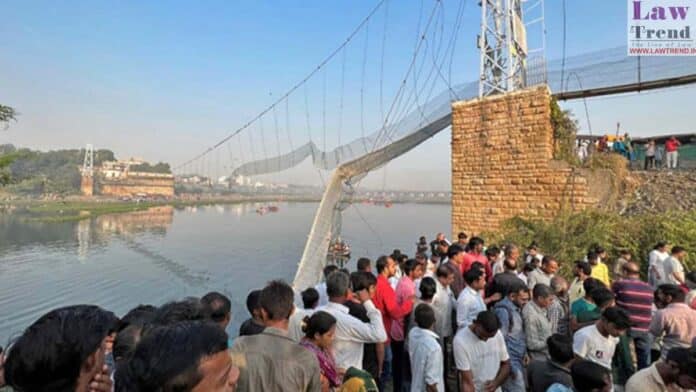In a significant development concerning the tragic Morbi bridge collapse, the Gujarat High Court has issued a directive for the amicus curiae, aided by an independent lawyer, to engage directly with the victims. This decision came during a hearing on Tuesday, presided over by Chief Justice Sunita Agarwal, regarding a suo motu public interest litigation (PIL) focused on this devastating event.
The collapse of the Morbi suspension bridge, a structure dating back to the British era located over the Machchu River, occurred on October 30, 2022. This catastrophic event resulted in the loss of 135 lives and caused injuries to 56 individuals.
Chief Justice Agarwal emphasized the court’s proactive approach in understanding the challenges faced by the victims: “We propose that someone should represent the court to engage in dialogue with the victims. The amicus, along with another lawyer, will visit and interact with them to grasp the reality of their situation and later compile a comprehensive report.”
The court also highlighted the unique stance of one of the victims who has refused compensation, suggesting that the legal team provide counsel to understand and possibly reconsider their decision. “We seek an independent viewpoint. The goal is to ensure all victims feel that the judiciary is a pillar of support and that their voices are heard,” stated CJ Agarwal.
The amicus curiae and accompanying lawyer are scheduled to make their visits in August, with logistical arrangements to be coordinated by the district collector to facilitate this important mission.
In parallel efforts, Advocate General Kamal Trivedi detailed initiatives by the Oreva Group’s Trust, which is accountable for the bridge’s operation and maintenance. On July 18, the Trust resolved to appoint members who will make quarterly visits to the victims to address their ongoing needs.
Also Read
Significant attention is also being directed towards the children affected by the tragedy. The district child protection officer will assist in overseeing the welfare of seven children who were orphaned, along with another group of 14 children who lost one parent. “The chief district health officer will also make rounds to meet other victims, ensuring comprehensive care and support from the trustees,” added Trivedi.




